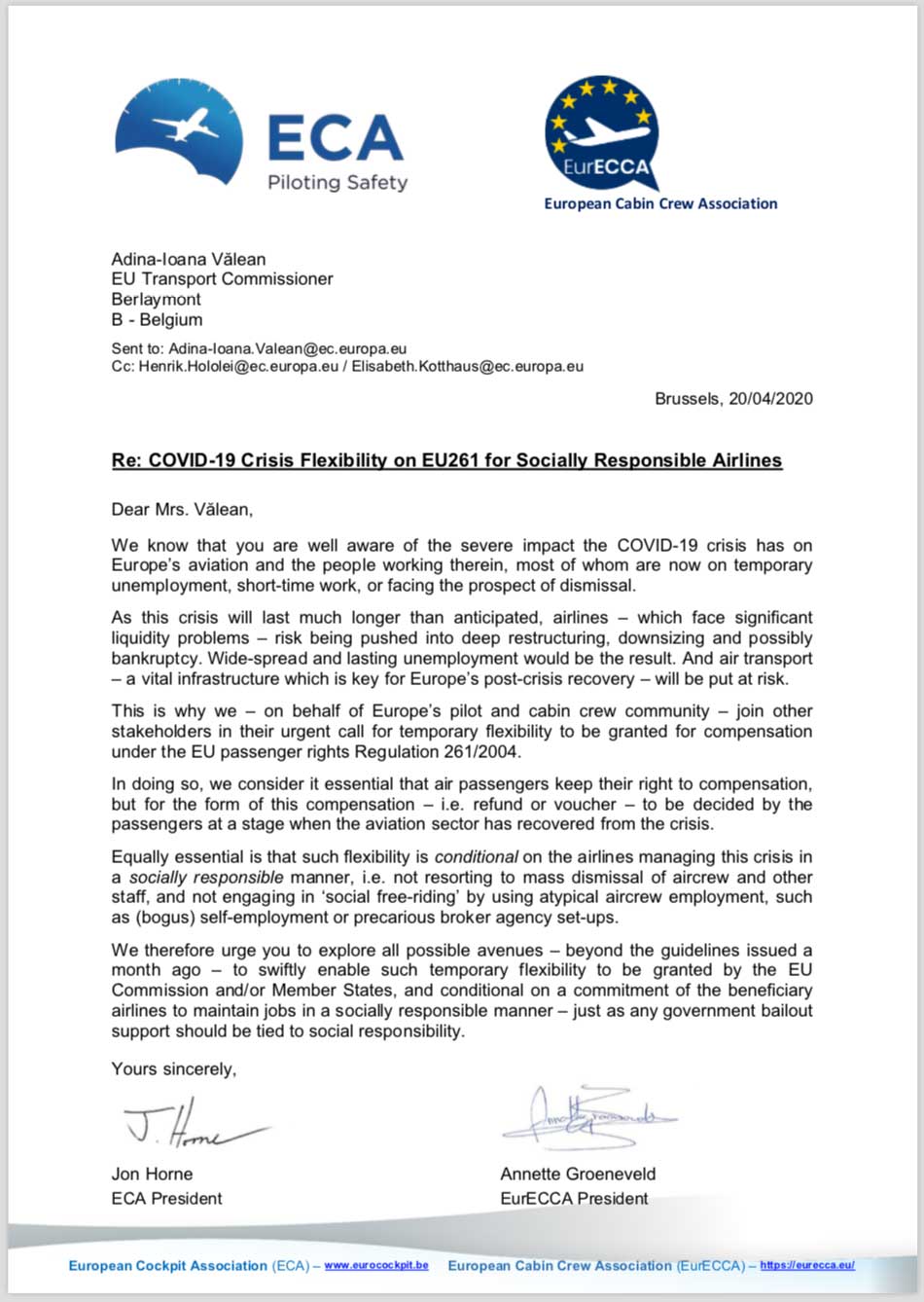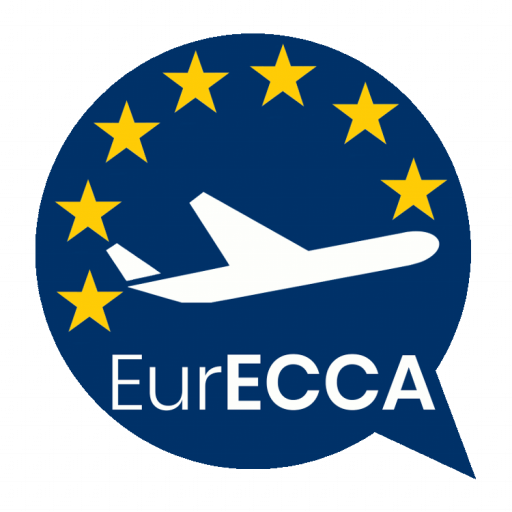EurECCA calls on Commissioner Valean to temporarily adapt Regulation 261/2004
EurECCA is calling for temporary flexibility under the EU passenger rights Regulation 261/2004, conditional on a commitment of the beneficiary airlines to maintain jobs & manage the crisis in a socially responsible manner.
With the spread of the COVID-19 pandemic, the aviation sector is going through a global crisis in general and a European one in particular, unprecedented in the history of civil aeronautics. This crisis is endangering hundreds of thousands of direct and indirect jobs, as well as the very survival of the European airline industry which is facing the most devastating economic challenge in its history.
Today economic projections for the European aviation sector estimate that the impact of COVID-19 will result in a loss of passenger revenue of almost 70 billion euros in 2020, a decrease of 76% compared to 2019, with demand down 44%. Passenger air traffic is paralysed, dropping by more than 85% compared to last year.
The next six months are looking grim, with the likely closure of both intra-European and Schengen borders extended until September 2020.
To meet this unprecedented challenge for aviation, tourism and trade, the preservation of money and treasury is an absolute priority and necessity for airlines in order to maintain employment, guarantee social stability and European economic development and facilitate mobility both within and outside the EU. For this reason the European Cabin Crew Association (EurECCA) together with the European Cockpit Association (ECA) appeal to commissioner Valean to facilitate airlines in their struggle to stay alive and thus preserve European jobs.
Regulation (EC) 261/2004, establishing common rules on compensation and assistance to passengers in the event of denied boarding and of cancellation or long delay of flights, continues to apply and obliges airlines to reimburse within 7 days passengers who request it. The current amounts of these potential reimbursements amount to more than 9 billion euros when no cash inflow can compensate for these expenses. Without willing to question the rights of passengers to reimbursement in normal times, and in the face of these exceptional circumstances, EurECCA and ECA request the temporary revision of Regulation 261/2004, granting the possibility for passengers to have a choice between a cash refund, payable within 12 months, or a redeemable voucher valid up to 18 months applicable to all European airlines.
For EurECCA and ECA, the gravity of this situation makes it essential for the Commission to safeguard the airlines’ liquidity. This will enable airlines to survive this crisis, but both associations are of the opinion that airlines who want to benefit from such flexibility should protect jobs as well as decent salaries and should not engage in mass dismissals, bogus self-employment or precarious broker agency set-ups.



